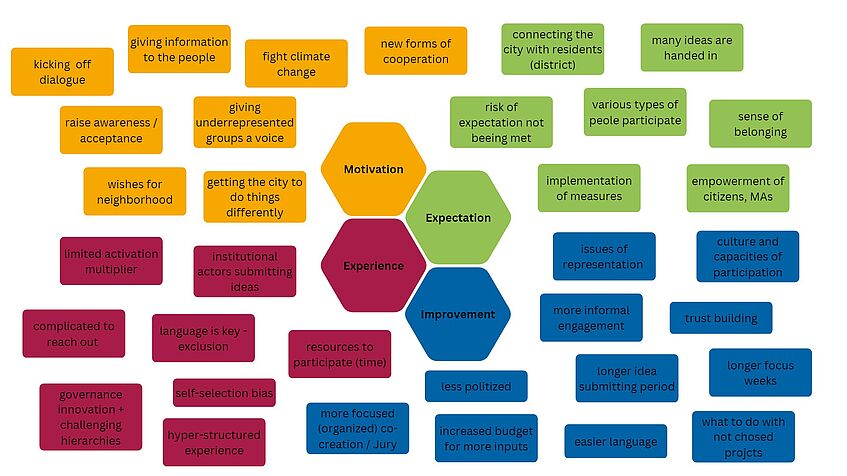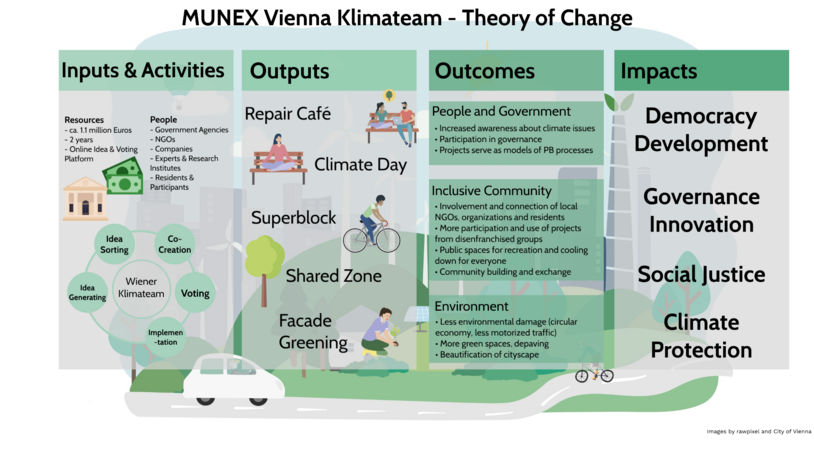Vienna
Case: the Wiener Klimateam
Regarding Citizen Participation, Vienna's top-down and interventionist policy approach is an enduring legacy of the long Social-Democratic municipal government, which has provided limited support to civic involvement in public affairs. While Urban Renewal Offices "Gebietsbetreuung Stadterneuerung" and Neighborhood Management Offices "Stadtteilmanagement" provide local residents with opportunities for engaging in the planning processes, these instruments lack a policy framework to ensure that participation has a meaningful outcome. Vienna’s first participatory budgeting was launched in Margareten in 2017 with the limited resources of the district council "Bezirksvertretung" only. The Wiener Klimateam at the city level began in 2020, which targeted climate change adaptation and mitigation in three pilot districts. This new governmental institutionalisation implies far greater financial resources and institutional capacities.
The Wiener Klimateam offers a novel example to study the current trend of participatory budgeting in European cities. First, Vienna’s top-down approach features a strong presence of organized groups in the public sector who play an active role throughout the process, which makes for a ‘corporatist’ model of participatory budgeting unique in Europe. Second, Vienna’s budgeting design – combining online and offline tools at different stages – contributes to building knowledge about such a hybrid form of participatory budgeting.
Urban Living Lab in Margareten
Conducting Participatory Monitoring and Evaluation

Market day at the Margaretenplatz, the heart of the 5th Viennese district.
Conducting Participatory Monitoring and Evaluation
The urban living lab (ULL) design of the Vienna case aims at conducting Participatory Monitoring and Evaluation (PM&E) for collaborative assessment of Wiener Klimateam’s first pilot year in the district of Margareten. Our ULL design foresees a transformative knowledge exchange between institutional and non-institutional actors that connects grassroots innovation with existing institutional opportunity structure. This represents the basis for building an epistemology of emancipation, which should emerge from upscaling grassroots mobilization as an organized political agency, contributing to kick-off institutional learning processes.
Building on the key defining characteristics of ULL in existing literature, we set three key objectives to achieve this primary aim: empowerment; innovation; and effectiveness. In order to achieve these objectives, we build three key components into our ULL design: geographical embeddedness; user involvement; and iterative learning, which are incorporated into three key stages of our ULL process: co-plan; co-develop; and co-implement. We apply different PM&E approaches in each stage, which is followed by specific data collection methods.


